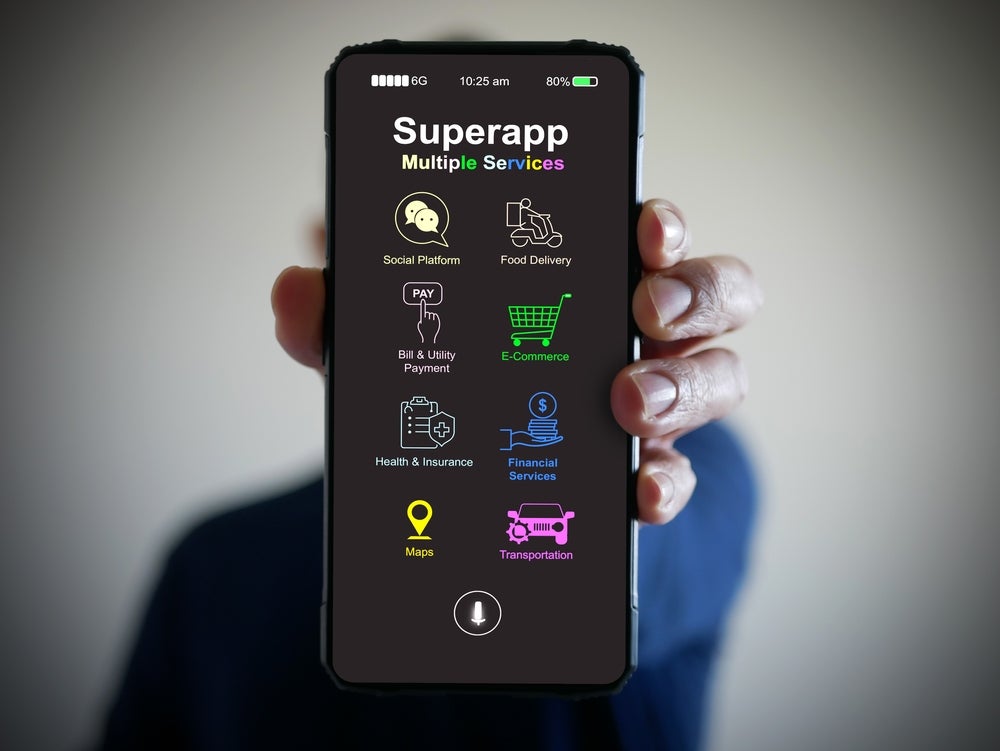
Superapps are nothing short of a phenomenon in Asia. Consumers young and old rely on them, and over the years they’ve become a firm part of day-to-day life. Meanwhile, tech enthusiasts and corporations alike have been mumbling for years about when Europe and North America will see its first true superapp. Over a decade on, we are yet to see a Western superapp, but that’s not to say Europe isn’t creating its own kind of superapp – one managed by governments, not private organisations, and that centres around identity. Let’s explore.
The superapp phenomenon
In Asia’s tech landscape, it is WeChat and AliPay leading the superapp charge. Launched in 2011, WeChat today boasts over 1.2 billion monthly active users, integrating services like messaging, payments, social networking, and even government services. AliPay dates back even further to 2004, beginning life as a payments platform but evolving over the years to offer functions that span financial services, shopping, and everyday utilities.

US Tariffs are shifting - will you react or anticipate?
Don’t let policy changes catch you off guard. Stay proactive with real-time data and expert analysis.
By GlobalDataThese apps are marvels for two reasons: how comprehensive they are in services, and how widely adopted they’ve become. Unsurprisingly, they have captivated the imaginations of tech enthusiasts and companies in the West for the last decade.
The most recent high-profile attempt to build such a platform came from Elon Musk, who publicly expressed his wish to transform X (formerly Twitter) into a superapp that would encompass social media, finance, and various other utilities. So far, there’s been little progress.
On the other hand, the rise of embedded finance has gone some way to realising something of a superapp, whereby more consumer-facing brands integrate financial services like loans and insurance into their offerings. But despite this market doing relatively well, we’re yet to produce an app that quite rivals the all-encompassing functionality and ubiquity of Asian counterparts. This begs the question – will we ever?
The view from the EU
Europe won’t ever see a superapp in the same vein as those in APAC. Data protection rules like GDPR, competition laws, and Europe’s love of open standards will all prove enough to stop any single private entity from layering so many pieces of functionality into one app and controlling such a vast amount of consumer data. The European Union has already been keeping a keen eye on brands like Apple and Google for their broad consumer data capture, privacy, and any threats of monopolisation.
It also doesn’t make sense as a business model in a market where many private apps are already mature, trusted, and widely adopted. Europe is however already making its shift to an identity-centric model that will see digital identities, rather than any single private superapp, at the heart of consumers’ day-to-day life.
Digital identities and the power of decentralised models
We’re on the cusp of a big change in how identity is managed in the digital ecosystem, powered by decentralised identity models. The EU Digital Identity Wallet (DIW) is set to provide all 447.7 million EU citizens with the ability to store and exchange identity documents and credentials securely and conveniently, all while keeping control of their own data.
Decentralised identity models remove the need for organisations to store huge databases of personal information. Instead, individuals possess their own DIW, typically stored on their mobile device, and have full control over what information they share, when, and with whom they share it.
A crucial part of this model is that you can select what personal information you share with third parties. For example, rather than sharing your full name and date of birth with a retailer selling alcohol, a decentralised identity model allows you to simply verify that you are the minimum legal age. This applies to any scenario where you need to assert and prove personal attributes like adulthood, national residence, and possession of a certificate.
Becoming Europe’s ‘superapp’
The EU DIW utilises open standards and APIs to enable third-party organisations – like banks, education institutions, and retailers – to plug in securely. Decentralised models are inherently highly secure and scalable, meaning it’s easy for organisations to plug in, and for the wallets to be used across borders. Meanwhile, if an organisation is breached, there is no treasure trove of personal data readily available to be stolen.
Digital identity in this way – covering such a variety of uses and reaching a wide scope of consumers – becomes its own kind of superapp. For users, they provide all the usability benefits of superapps while allowing them to maintain control of their data and privacy. For private organisations, especially operating in a highly regulated environment like the EU, these governmentally controlled models remove a lot of responsibility, liability, and work needed to maintain huge, highly sensitive databases. It’s a win-win.
Security is still a top priority in the individual wallets. Here, strong authentication is key – it’s what stops fraudsters from gaining access to accounts and services, and forces those acting behind the screen to prove they are who they claim to be. Facial biometrics will ultimately be this strong authenticator, for a few reasons.
Things we know, like passwords, are easily shared, guessed, stolen, or forgotten. Things we have, like phones or USB authenticators, are great until we lose or misplace them. But things we are, like biometrics, simply cannot be stolen, shared, or lost in the same way. They can be copied, with significant effort and expertise, which is why robust liveness and genuine presence assurance are so vitally needed to ensure users are who they say they are and they are present in real time.
Super identities and looking ahead
Superapps aren’t going anywhere anytime soon in Asia, but neither are they likely to appear in Western markets under the same guise. And it’s not just the EU’s wallet either – the State of California also recently launched a mobile driving licence based on the decentralised model.
The identity-centric model that is emerging is hugely exciting and represents its own kind of superapp revolution that will have a comparably profound impact on consumer behaviour, with consumers in control.
Andrew Bud is founder and CEO of iProov









